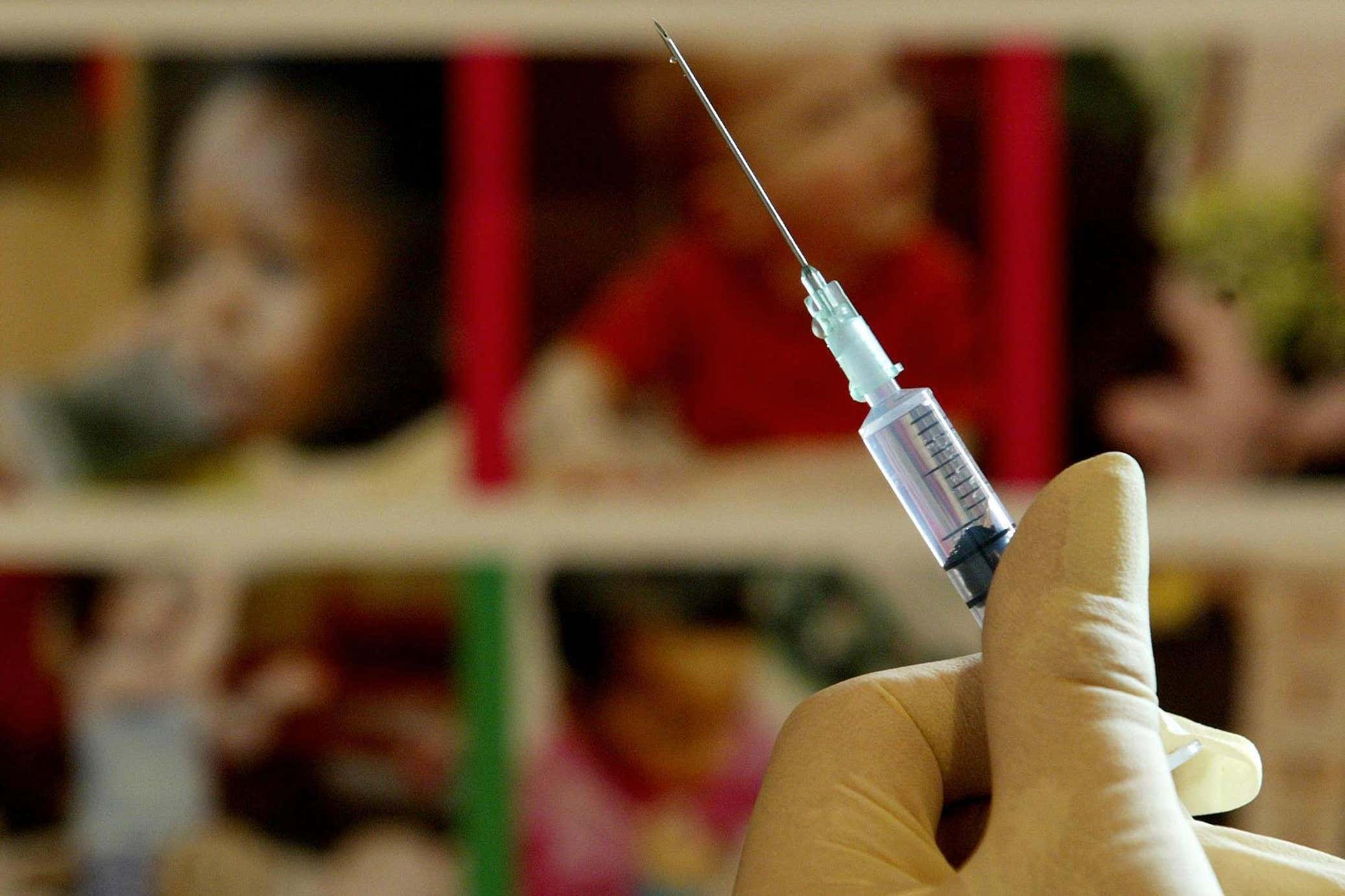Parents urged to book missed MMR jabs amid ‘very real’ measles risk
The NHS campaign will also target areas of low vaccine coverage, such as London and the West Midlands.

Millions of parents in England are being urged to book their children in for missed measles, mumps, and rubella (MMR) jabs, amid a “very real risk” of measles outbreaks across the country.
Officials said the decline in the uptake of routine childhood vaccinations is a “serious concern”.
The new NHS campaign comes after figures showed there have been 216 confirmed measles cases and 103 probable cases in the West Midlands since October 1 last year.
The majority (80%) came from Birmingham, with the remainder in Coventry. Most cases were in children under 10.
The UK Health Security Agency (UKHSA) declared a national incident, an internal mechanism signalling the growing public health risk.
The vaccine catch-up scheme will target all parents of children aged six to 11, urging them to make an appointment for any missed MMR jabs.
It will also target areas of low uptake, contacting more than one million people aged 11 to 25 in London and the West Midlands.
The first dose of the MMR jab is usually offered to babies aged one, with the second dose given at three years and four months.
NHS figures show more than 3.4 million children under the age of 16 years are unprotected by MMR and at risk of catching measles, mumps and rubella.
Steve Russell, NHS director of vaccinations and screening, said the health service “is acting quickly to tackle the spread of measles”.
“People who are unvaccinated can get catch-up jabs at pop-ups in schools and other convenient places, while GPs, teachers and trusted community leaders are encouraging groups that are less likely to get their jab to come forward,” he added.
“All this builds on the national MMR catch-up campaign the NHS rolled out at the beginning of winter, with text, email and letter reminders sent out to parents and guardians of children up to five who have yet to get full protection.
“Measles is a serious illness, with one in five children who get the disease having to be admitted to hospital for treatment, so if you or your child have not had your MMR jab, it is vital you come forward.”
Dr Gayatri Amirthalingam, consultant medical epidemiologist at UKHSA, added: “The continuing downward trend in the uptake of routine childhood vaccinations is a serious concern.
“The diseases that these vaccines protect against, such as measles, can be life-changing and even deadly. No parent wants this for their child especially when these diseases are easily preventable.
“We now have a very real risk of measles outbreaks across the country.
“Please don’t put this off, check now that your children are fully up to date with both their MMR jabs and all their routine vaccines, and do take up the offer as soon as possible if you are contacted by your GP practice or the NHS for your child to catch up.”
The diseases that these vaccines protect against, such as measles, can be life-changing and even deadly
NHS England said data shows the MMR jab is “safe and very effective”.
About 99% of people will be protected against measles and rubella after two doses, while about 88% will be protected from mumps.
During a visit to Birmingham on Friday, UKHSA chief executive Dame Jenny Harries said low coverage is a “nationwide problem”.
“The World Health Organisation would seek that all countries have a 95% coverage rate, we have achieved what they would describe as measles elimination previously.
“If you look at the whole country, our vaccination rate has dropped down to about 85% for children getting to school with two MMR vaccinations, which is what is needed.
“In some areas, these are going right down to about 70% and that is too low to maintain safe population coverage, we want that at about 95%.”
She also urged people to seek trusted sources such as the NHS website to avoid misinformation.
“Clearly there is misinformation, and people look at different sources that they feel are trusted sources.
“We would always direct people to the NHS website or the UKHSA one which is a trusted source of information.”
Bookmark popover
Removed from bookmarks